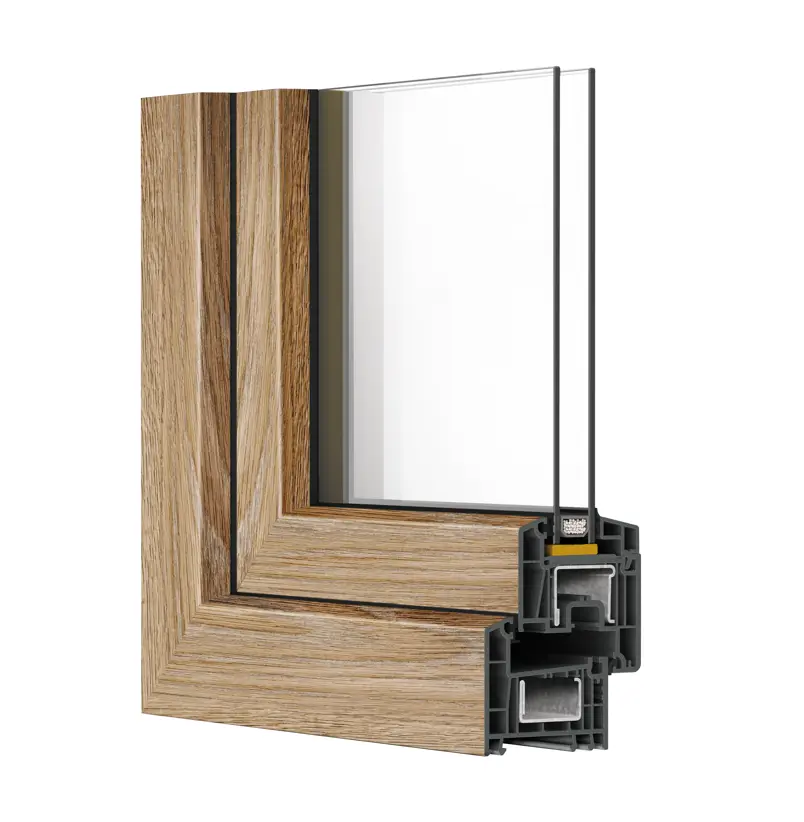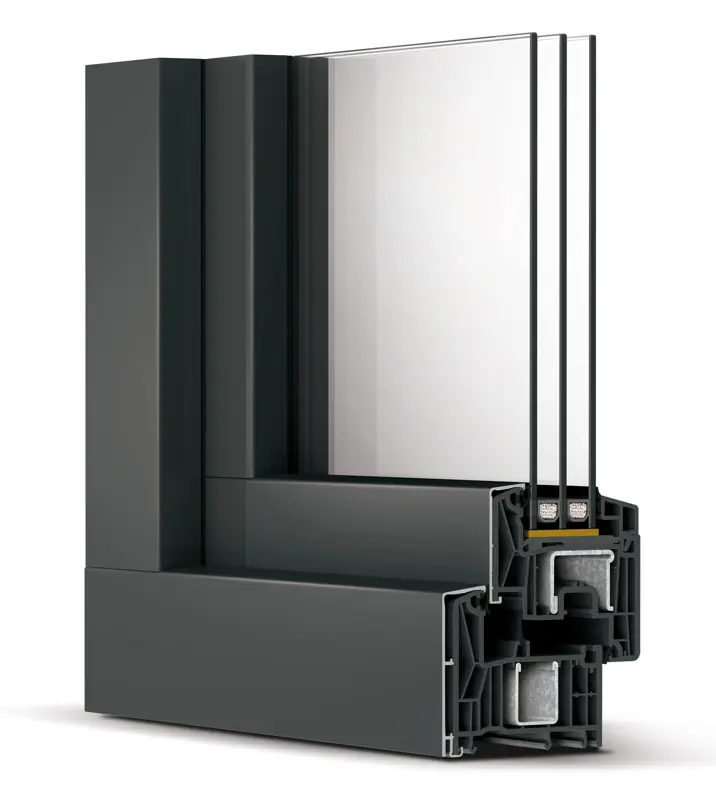Double or triple glazing?
Insulated glass units are an important functional element of modern window systems. They ensure energy efficiency, sound insulation and comfort. The choice between double or triple glazing can significantly affect the comfort in your home or apartment. In this article, we will discuss the main differences between two- and three-pane windows, their advantages and disadvantages, and also give recommendations on choosing the best option.
Contents:
Double glazed windows and their features
Double-glazed windows consist of two layers of glass, between which there is an air or gas space that provides thermal insulation. Such double-glazed windows are widely used in modern buildings - residential houses, apartments and industrial buildings. Here are some of the pros and cons of double glazed windows:
Advantages of double-glazed windows
- Energy efficiency. Double-glazed windows provide good thermal insulation for most climate zones, which saves on heating and air conditioning.
- Sound insulation. Although double glazing is not as efficient as triple glazing, it still provides an acceptable level of sound insulation.
- Cost. Double glazing is less expensive than triple glazing, which makes them more affordable for a large number of consumers.

Disadvantages of double glazed windows
- Lower thermal insulation. Compared to triple-glazed windows, double-glazed windows have less thermal insulation, which can lead to heat loss in the colder months.
- Worse sound insulation. While double glazing provides a satisfactory level of sound insulation for most buildings, it may not be sufficient for particularly noisy locations or buildings with high sound insulation requirements.
- Higher heating costs. Although double glazing may be cheaper than triple glazing, in the long run, due to lower energy efficiency, the total heating costs will be greater than the difference in cost between double and triple glazing.
Triple glazed windows and their features
Triple glazed windows have three layers of glass separated by an air or gas space. They are becoming more and more popular due to their excellent thermal insulation properties and energy efficiency.
Advantages of triple-glazed windows
- Excellent thermal insulation. Triple-glazed windows have better thermal insulation properties than double-glazed windows, which helps to retain heat in the room and reduce heating costs.
- Effective sound insulation. Thanks to an additional layer of glass and an air or gas chamber, triple glazing provides better sound insulation than double glazing.
- Better energy efficiency. Triple-glazed windows reduce heat loss and improve the building's overall energy efficiency, which helps to reduce heating costs.

Disadvantages of triple-glazed windows
For all their advantages, these triple glazed windows have some disadvantages. The main one is the significant weight of the insulating glass unit. Compared to the double solution, the triple version weighs 1/3 more (due to the fact that instead of two panes three panes are used).
This feature should be taken into account, first of all, when planning glazing of balconies and wooden houses. There are certain standards regarding the permissible weight load of the building, so when choosing an insulating glass unit, this should be taken into account.
The difference between double and triple glazing
Double and triple glazing have different features that distinguish them in terms of energy efficiency, sound insulation, weight and cost. The choice between them depends on many factors, such as climatic conditions, architectural features of the building, sound insulation requirements and budget.
The main differences between double and triple glazing
| Properties | Double glazed windows | Triple glazed windows |
| Number of layers of glass | 2 | 3 |
| Thermal insulation | Lower | Higher |
| Sound insulation | Lower | Higher |
| Cost | Lower | Higher |
| Weight | Lower | Higher |
| Installation | Simpler | More complex |
| Energetic efficiency | Lower | Higher |
The table provides a comparative overview of the key features of double and triple glazing, which can help you make the right decision about which option is best for your home. Please note that the actual performance may vary depending on the glass used and the filling of the internal chambers of the insulating glass unit.
Which windows to choose double or triple glazing
The choice between double and triple glazing depends on many factors. We recommend paying attention to the following:
- Climatic conditions. When considering the choice of a double-glazed window, you should take into account the climatic conditions in your region. For cold and temperate zones, triple glazing may be more beneficial, while for warm zones, double glazing may be quite effective.
- Architectural features. Consider the architectural features of your building in accordance with the regulations and any building guidelines/requirements regarding loads and structural appearance.
- Sound insulation requirements. If your building is in a noisy location or has special requirements for sound insulation, triple glazing may be a better choice.
- Calculate energy efficiency. To make an informed choice between double or triple glazing, compare their energy efficiency and assess which option will give you more savings on heating and air conditioning in the long run.
Choosing between double and triple glazing can be a daunting task. We recommend contacting a professional consultant for individual advice and choosing the best option that meets your needs and requirements. This will help ensure that your windows are as efficient as possible and last as long as possible. Our experts are always ready to help - +48459569750.








